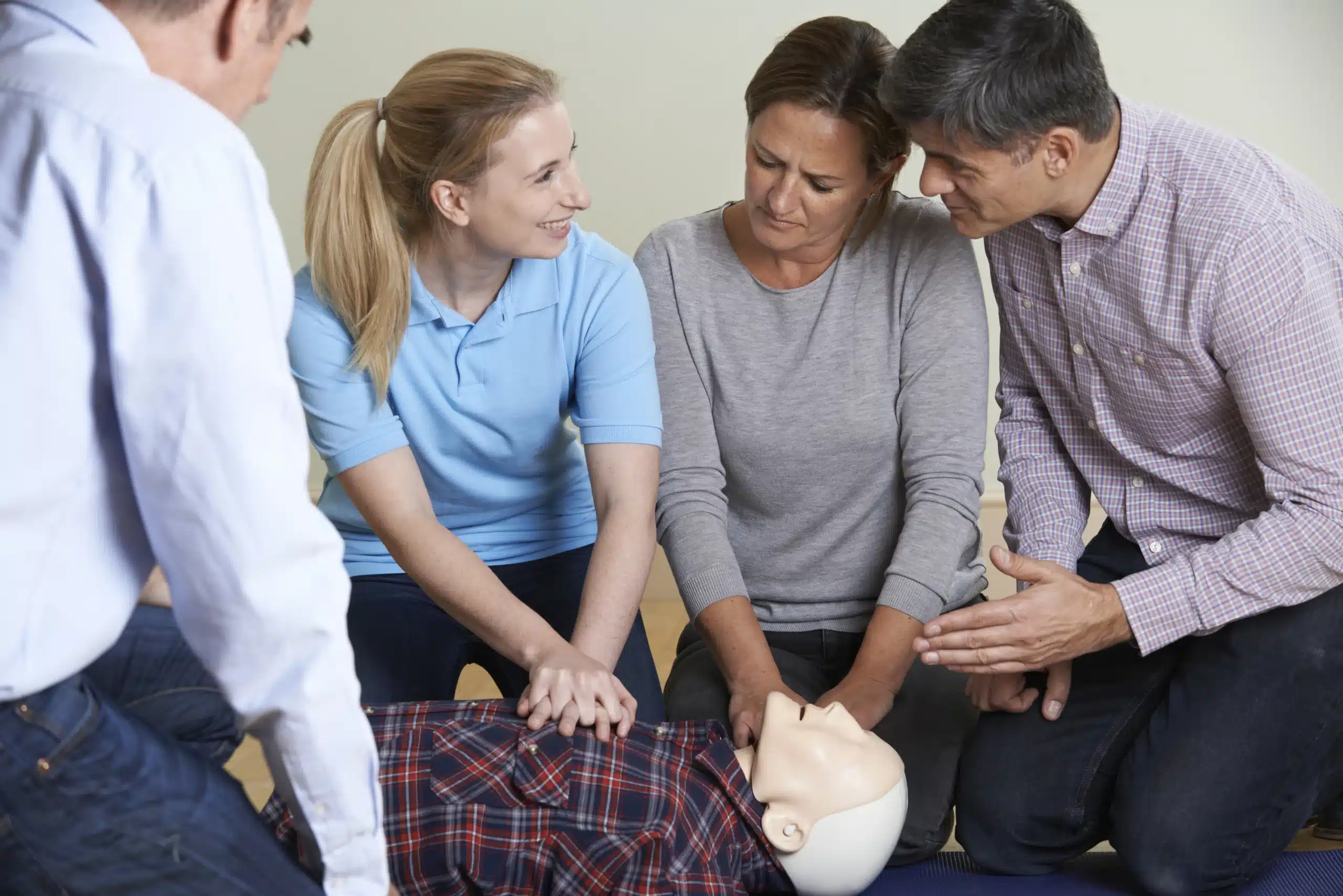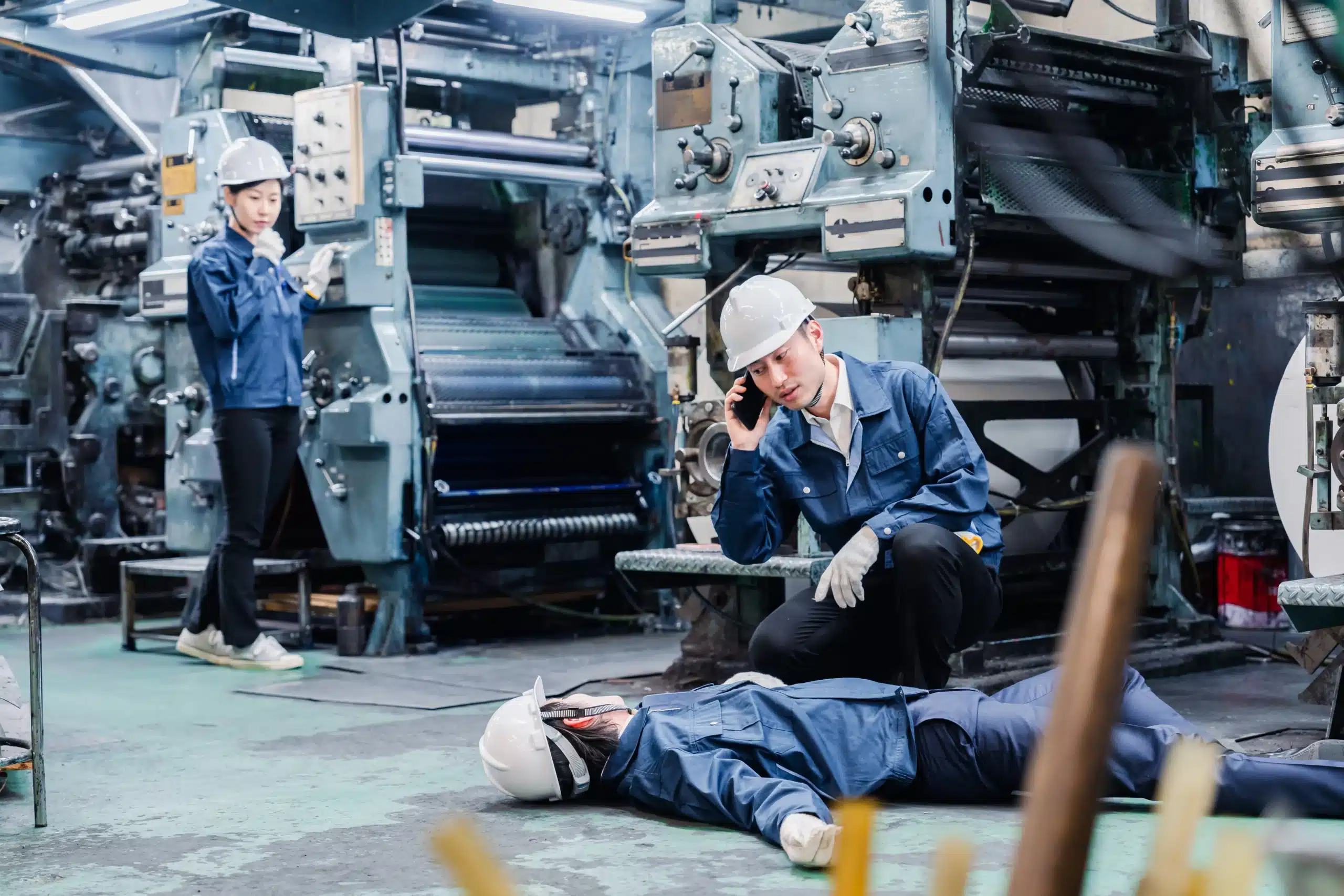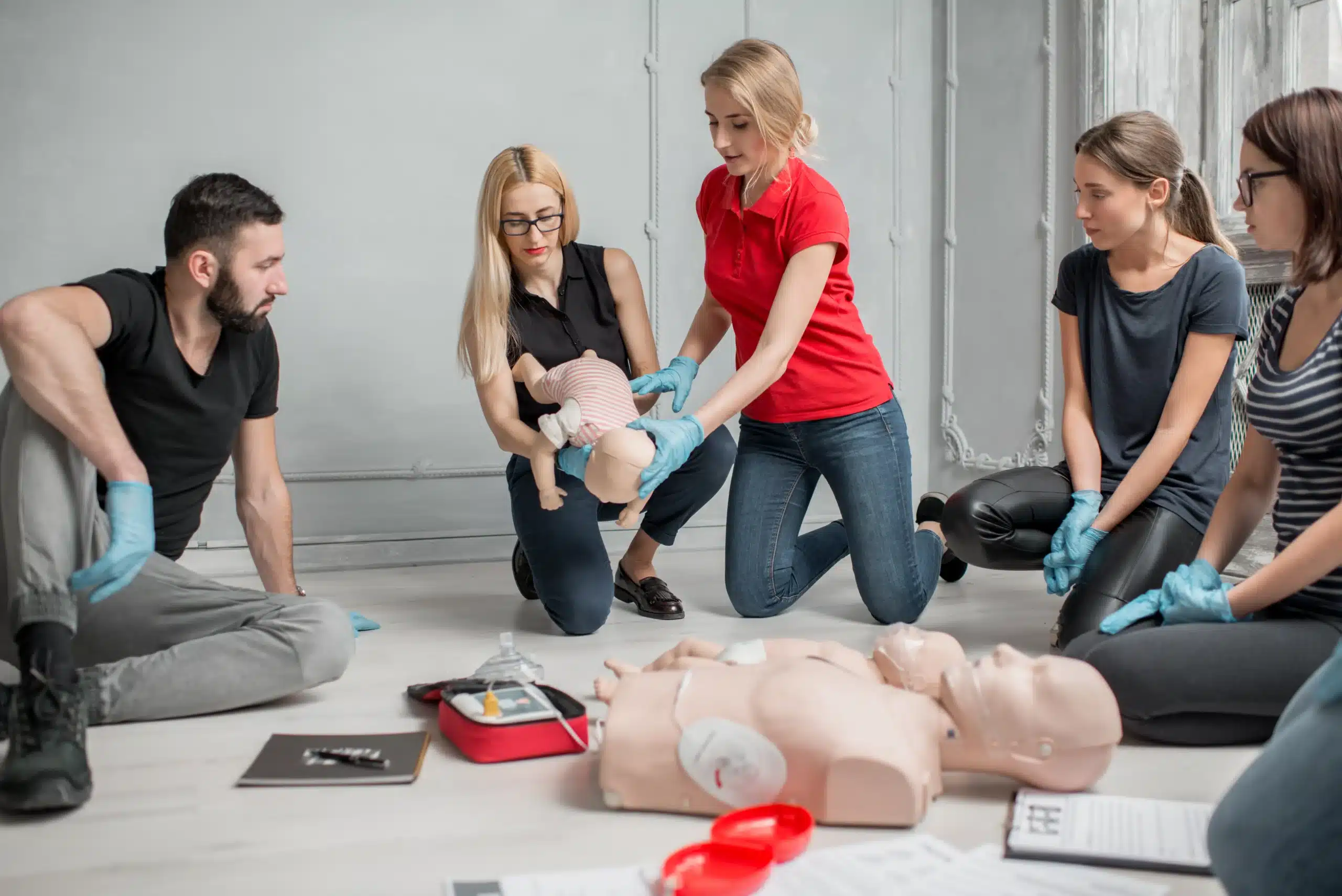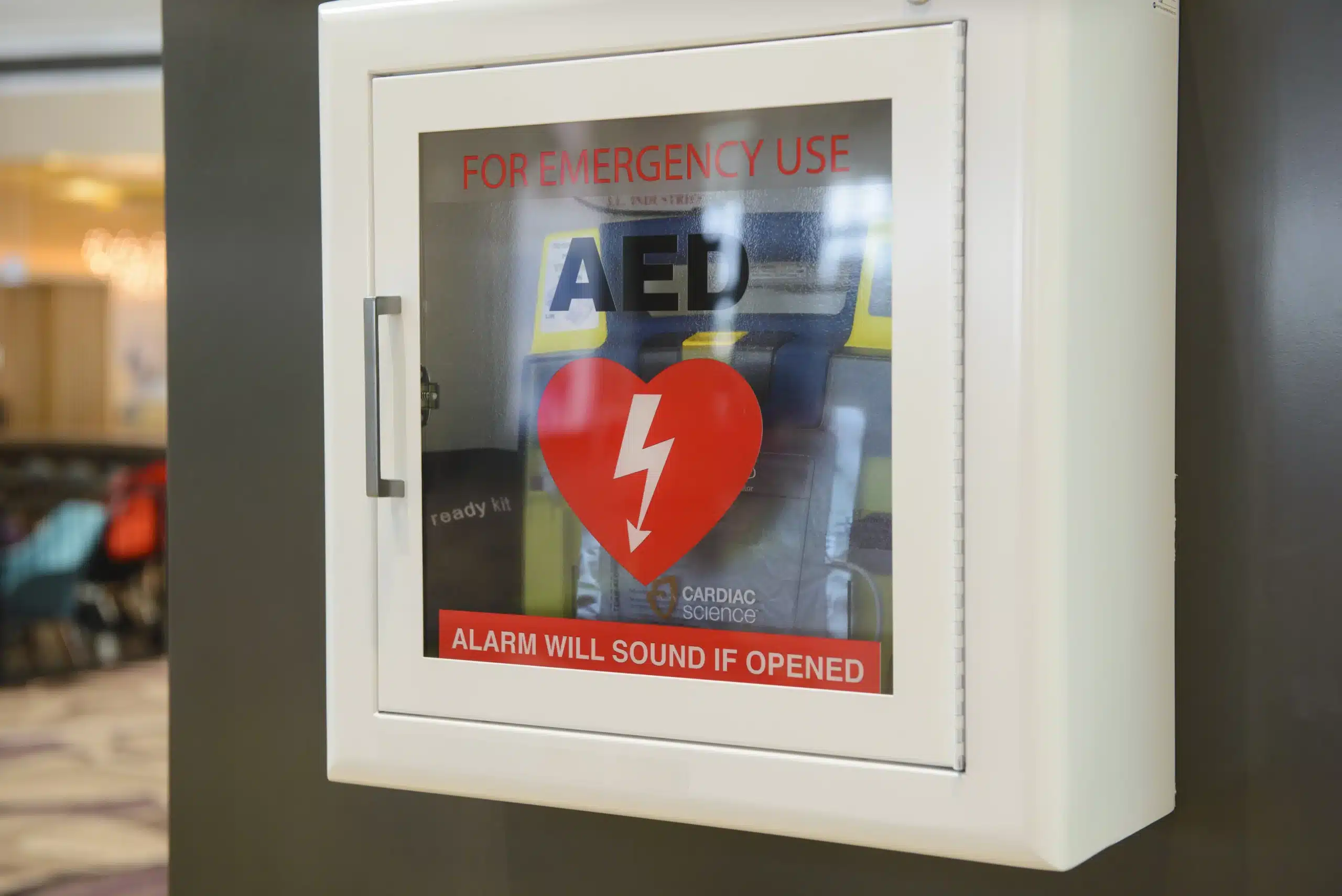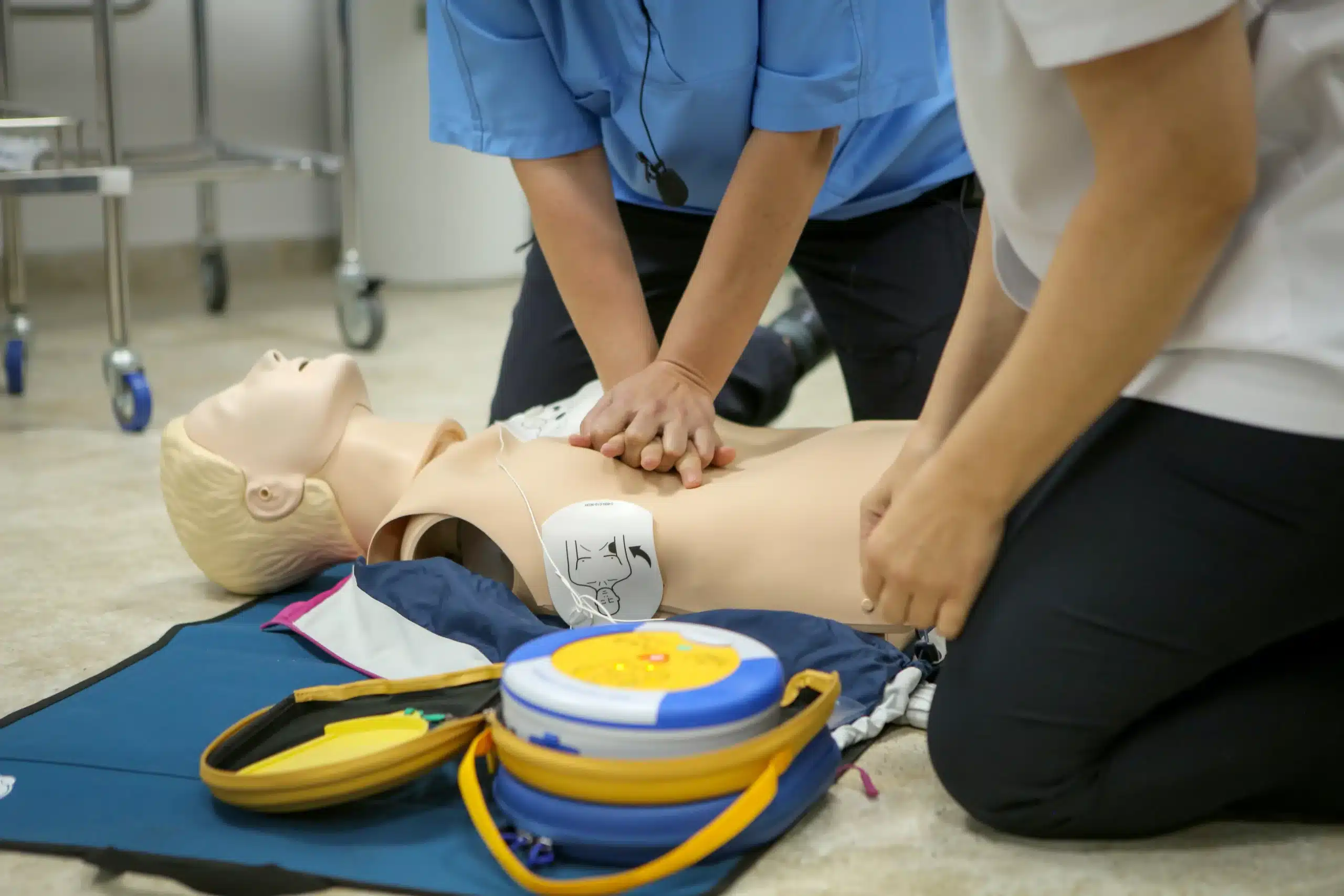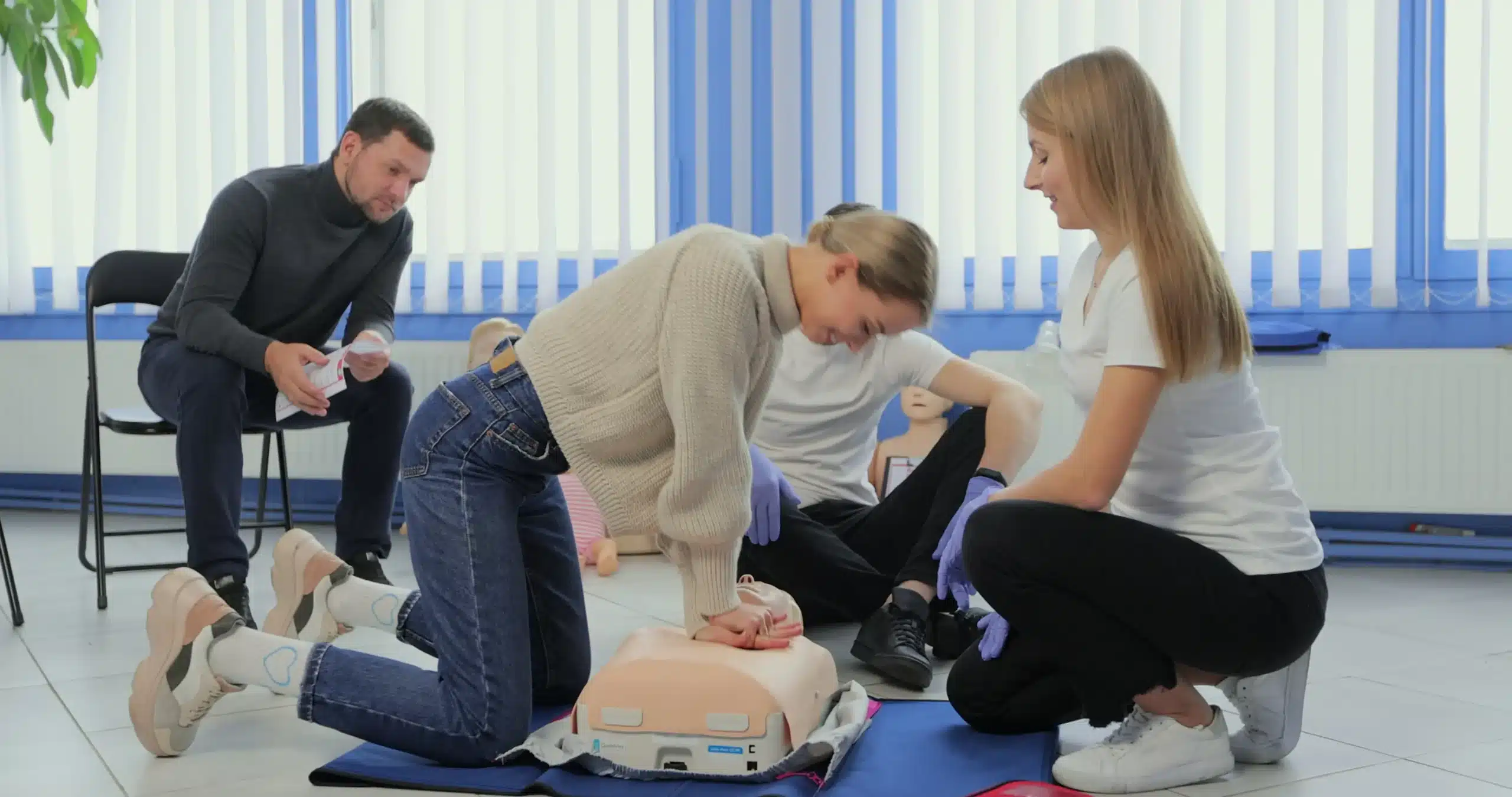Life is unpredictable. Emergencies can happen anytime, anywhere. Being equipped to handle a medical crisis, especially one involving cardiac arrest, can make all the difference. That’s where CPR certification in Davis comes in. This comprehensive guide walks you through the process of getting CPR certified, from understanding the different levels of certification to finding a course that fits your schedule and budget. Whether you’re a healthcare provider, a student, or simply someone who wants to be prepared, we’ll help you find the right CPR training in Davis. We’ll also cover essential information on maintaining your certification and staying up-to-date with the latest life-saving techniques.
Key Takeaways
- CPR Certification Matters: Whether required for your job or for personal preparedness, CPR certification empowers you to respond effectively in emergencies. Choose the certification level that aligns with your needs and career goals.
- Find the Right Course Format: In-person, blended learning, and online options offer flexibility. Consider your learning style, schedule, and the importance of hands-on practice when selecting a course.
- Maintain Your Skills: CPR certifications typically expire every two years. Stay current with renewal requirements and continuing education opportunities to ensure you’re always prepared to help.
What is CPR Certification in Davis?
CPR certification in Davis confirms you’ve completed a course and can perform cardiopulmonary resuscitation (CPR). It’s a crucial credential for healthcare providers, first responders, and anyone who wants to help in a medical emergency. It demonstrates you know how to respond when someone’s breathing or heart stops. This training covers chest compressions, rescue breaths, and using an automated external defibrillator (AED). A current CPR certification gives you the confidence to act in a cardiac or breathing emergency. For reliable CPR training, check out the American Heart Association CPR & First-aid courses at Woodland CPR. We also offer EMSA Child Care Health & Safety training, which often includes CPR certification specifically for childcare providers. Beyond the technical skills, CPR certification empowers you to act quickly and effectively in critical situations. It equips you to potentially save a life. For convenient and cost-effective options, explore our group discounts or our low price guarantee. We’re committed to making this life-saving training accessible to everyone in Davis.
CPR Certification Courses in Davis
Finding the right CPR certification course can feel overwhelming with so many options. This section breaks down the different types of CPR certification available in Davis, California, to help you choose the best fit.
Heartsaver CPR/AED
The Heartsaver CPR/AED course focuses on essential life-saving skills for anyone. It’s ideal for those who need to respond to emergencies in non-healthcare settings, such as schools, offices, or community centers. This course equips you with the knowledge and skills to perform CPR and use an automated external defibrillator (AED). Providers like the UC Davis Fire Department offer this valuable training.
BLS for Healthcare Providers
Healthcare professionals require a higher level of training. The BLS for Healthcare Providers course covers advanced life support techniques specifically designed for healthcare settings. This certification is essential for doctors, nurses, paramedics, and other healthcare workers. Davis CPR Classes offers this American Heart Association (AHA)-certified course, ensuring healthcare providers stay up-to-date on the latest life-saving practices.
First Aid Certification
Beyond CPR, having solid first aid skills is crucial for handling various medical emergencies. First Aid certification courses teach essential skills to respond to injuries, illnesses, and other emergencies. These courses are valuable for anyone looking to enhance their emergency response capabilities, from teachers and coaches to parents and caregivers. Check out Davis CPR classes for more information.
Advanced Courses: ACLS and PALS
For healthcare providers dealing with more complex emergencies, advanced courses like ACLS (Advanced Cardiovascular Life Support) and PALS (Pediatric Advanced Life Support) are essential. ACLS focuses on adult cardiac emergencies, while PALS addresses pediatric emergencies. These certifications are crucial for healthcare professionals working in critical care settings. Davis CPR Classes offers these advanced courses, adhering to the latest AHA guidelines.
CPR Certification Costs & Discounts
CPR certification costs vary depending on the course type, the training provider, and your location. Knowing the typical price ranges and available discounts helps you budget and find the best value.
Typical Course Prices
Basic Life Support (BLS) certification, often required for healthcare providers, typically costs around $100, though this can vary. Providers throughout Davis, Woodland, and Sacramento offer AHA-certified courses, including BLS, ACLS, and PALS. Check with a few different providers, like Davis CPR Classes, to compare pricing and course schedules. This will give you a clearer picture of the cost of CPR certification in your area.
Free & Discounted Options
While most CPR certification courses have a fee, some discounted or free options might be available. Check with local community centers, hospitals, or non-profit organizations. Some training centers, like Woodland CPR Classes, offer student discounts. Also, look into programs like RQI, which can offer a streamlined and often more affordable path to recertification. A low price guarantee can also help you secure the best rate.
Group Discounts
If you need to certify a group, like coworkers or a community organization, ask about group discounts. Many training providers offer reduced rates for group bookings. Whether you’re coordinating training for a workplace or a group of friends, comparing options and asking about group discounts can save you money. Providers like Kiser CPR often have special pricing for larger groups. This makes it more cost-effective to train together.
Where to Get Certified in Davis
Finding the right CPR certification course in Davis is easy thanks to several excellent providers. Whether you’re a healthcare professional, a student, or just someone who wants to be prepared for emergencies, there’s an option for you. Here’s a rundown of some reputable training centers:
UC Davis Fire Department
The UC Davis Fire Department offers various CPR and First Aid certification courses. Their training stresses the importance of immediate CPR to increase survival rates from cardiac arrest, making them a solid choice for students and anyone living near the university.
Safety Training Seminars
Safety Training Seminars provides AHA-certified courses in CPR, BLS, ACLS, PALS, and First Aid. With daily classes and both online and in-person options, they offer flexibility for busy schedules.
American Red Cross
The American Red Cross is a well-known provider of CPR training and certification. Their in-person and blended learning courses meet OSHA compliance requirements, making them suitable for workplace training.
Woodland CPR Classes
Woodland CPR Classes offers a comprehensive range of AHA courses, including BLS. They are a convenient option for those in and around Davis, also serving Woodland and Sacramento.
Davis CPR Classes
Davis CPR Classes focuses on providing accessible, high-quality AHA BLS training in Davis and the surrounding areas, including Woodland and Sacramento.
Kiser CPR, LLC
Kiser CPR, LLC offers AHA-authorized CPR, First Aid, and Basic Life Support certification courses, a good option for those seeking a straightforward and reputable provider.
In Home CPR
In Home CPR offers ASHI-certified CPR and AED training. Their unique approach allows classes to be held at your home or business for maximum convenience.
Choose Your CPR Class Format
Finding the right CPR class format is key to effectively learning these lifesaving skills. Let’s break down the most common options so you can choose what works best for you.
In-Person Training
In-person CPR training offers a truly immersive learning experience. You’ll get comprehensive, hands-on practice and personalized feedback from your instructor in real-time. This direct interaction helps build confidence and ensures you’re comfortable performing CPR in a real-life emergency. For many, practicing in a controlled environment with an experienced professional is invaluable. If you learn best in a traditional classroom setting and value face-to-face instruction, in-person training might be your ideal choice. You can find more information on in-person training options for BLS classes in Woodland at Davis CPR Classes.
Online & Blended Learning
Online CPR training offers unparalleled flexibility and affordability. Learning at your own pace, from anywhere with an internet connection, makes fitting CPR training into a busy schedule much easier. However, online-only courses may not provide the same level of hands-on practice as in-person classes. This is where blended learning comes in. Blended learning combines the convenience of online coursework with a brief, in-person skills check-off session. This hybrid approach allows you to learn the material at your own speed and then demonstrate your skills to a certified instructor. If you prefer a more flexible learning environment and want to get CPR and First Aid certified in Davis, explore the blended learning options available. For more information on blended learning, especially for BLS HeartCode in Davis, check out the resources available at Woodland CPR Classes. It’s important to note that while online and blended learning are convenient, they might not be accepted by all employers, so check your workplace requirements before enrolling. You can learn more about how long CPR training takes on MedTrainer’s blog.
Flexible Scheduling
Juggling work, family, and other commitments can make finding time for CPR training challenging. Look for training centers that offer flexible scheduling options, including weekend and evening classes, to accommodate your busy lifestyle. Davis CPR Classes is known for its accessible, high-quality training with various scheduling options. You can find CPR courses in Woodland that fit your schedule. Whether you prefer in-person or online learning, finding a course that fits your schedule is essential for successful completion.
Select the Right CPR Course
Choosing the right CPR course involves considering your career goals, the quality of instruction, and the certification’s lifespan. Let’s break down these key factors to help you make an informed decision.
Check Career Requirements
Before you jump into a CPR class, take a moment to think about your specific needs. Many healthcare jobs require BLS (Basic Life Support) certification, which covers core CPR skills and is a foundation for more advanced training. BLS certification typically costs around $100, but this can vary based on the training center and your location. If you’re pursuing or advancing in a healthcare career, BLS certification is a worthwhile investment. For those outside of healthcare, a Heartsaver CPR/AED course might be sufficient, so check with your employer or professional organization for their recommendations.
Evaluate Course Content & Instructors
Not all CPR courses are created equal. Look for courses with comprehensive content aligned with the latest American Heart Association (AHA) guidelines. Woodland CPR Classes offers a wide range of AHA-certified courses, ensuring you receive high-quality training. Equally important are the instructors. Experienced, certified instructors can make a big difference in your learning experience. Check if the training center highlights their instructors’ credentials and experience—it’s a good sign they’re committed to providing top-notch instruction. Davis CPR Classes is another provider that emphasizes AHA-authorized training, giving you confidence in the quality of their courses.
Certification Validity & Renewal
CPR skills require regular refreshing, so understanding the certification’s validity period is essential. Most CPR certifications are valid for two years. Before signing up, confirm the renewal process and any associated costs. The RQI program, offered by some providers like Woodland CPR Classes, provides a flexible and convenient way to renew your certification. Knowing the renewal requirements upfront helps you stay current with your life-saving skills and maintain your professional qualifications.
Maintain Your CPR Certification
Once you’ve earned your CPR certification, staying current is key. Knowing how to maintain your certification ensures you’re always prepared to help in an emergency. Here’s what you need to know:
Renewal Guidelines
CPR certifications, like BLS for Healthcare Providers, typically expire every two years. It’s important to keep track of your expiration date and renew before it lapses. This usually involves taking a renewal course, which covers any updates to CPR guidelines and techniques. Renewal courses are often shorter than initial certification courses, making them a convenient way to stay certified. Check with your certifying organization, such as the American Heart Association, for specific renewal requirements. The typical cost for BLS renewal is around $100, but this can vary based on the training center and location. Check out our Low Price Guarantee to see how we can help you save.
Continuing Education
Even if your certification isn’t due for renewal, ongoing education is a great idea. Think of it as a way to fine-tune your skills and stay familiar with the latest emergency care practices. ACLS and PALS certifications also require renewal every two years. Consider taking refresher courses or attending workshops to deepen your understanding and boost your confidence. This not only benefits you but also ensures you can provide the best possible care in critical situations. We offer a variety of advanced courses to help you expand your skillset.
Stay Updated on CPR Techniques
CPR techniques can evolve as medical knowledge advances. Staying informed about these changes is crucial for providing effective care. Subscribing to newsletters from reputable organizations like the American Heart Association or following them on social media can keep you in the loop. You can also find valuable resources and updates on our blog. Staying updated ensures you’re always using the most effective techniques when it matters most. We also offer convenient RQI programs for skills maintenance.
Related Articles
- BLS for Healthcare Providers in Davis: A Complete Guide – Woodland CPR Classes
- BLS HeartCode in Davis: The Complete Guide – Woodland CPR Classes
- BLS Classes in Davis: Find the Right Course for You – Woodland CPR Classes
- PALS HeartCode in Davis: Your Certification Guide – Woodland CPR Classes
- Online ACLS Classes in Davis: Your Guide – Woodland CPR Classes
Frequently Asked Questions
What’s the difference between CPR and First Aid certification?
CPR focuses specifically on life-saving techniques for someone whose heart or breathing has stopped. It involves chest compressions, rescue breaths, and using an AED. First Aid covers a broader range of medical emergencies, from minor injuries like cuts and burns to more serious situations like allergic reactions and strokes. While distinct, these skills often complement each other, providing a well-rounded approach to emergency response.
How much does CPR certification cost in Davis?
The cost varies depending on the course type and provider. Basic CPR/AED courses are generally less expensive than BLS for Healthcare Providers. Expect to pay around $75-$125 for most courses. Look for providers offering discounts, like our low price guarantee, or group rates to save money.
Which CPR certification is right for me?
If you’re in healthcare, BLS for Healthcare Providers is likely required. For non-healthcare settings, a Heartsaver CPR/AED course is usually sufficient. Consider your workplace requirements and desired skill level when choosing. If you’re unsure, contact us at Woodland CPR Classes, and we can help you find the right fit.
How long does CPR certification last, and how do I renew it?
Most CPR certifications are valid for two years. Renewal typically involves taking a refresher course to update your skills and knowledge of any changes in CPR guidelines. Some providers offer streamlined renewal programs like RQI, which can be more convenient and cost-effective. Check with your certifying organization or training provider for specific renewal requirements.
What’s the best way to learn CPR – online or in person?
Both methods have their advantages. In-person classes offer hands-on practice and direct interaction with an instructor. Online courses provide flexibility and convenience, allowing you to learn at your own pace. Blended learning combines online coursework with an in-person skills assessment, offering a balance of both. Consider your learning style and schedule when deciding which format is best for you.
